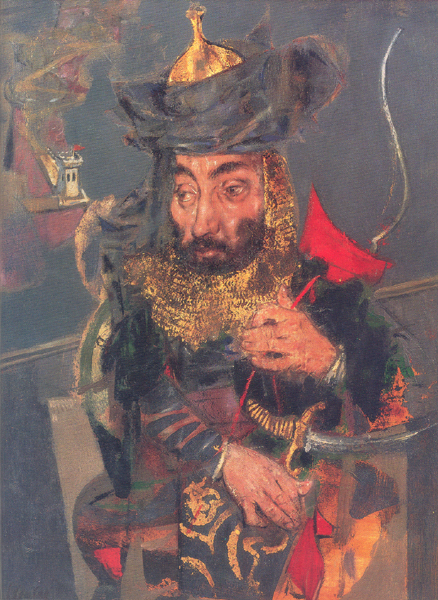Image Details

Photo courtesy Midtown Payson Galleries, New York
A weary, inept King Saul, weighed down by the burdens of power, is depicted in this painting by the contemporary American artist Jack Levine. According to author Kenneth Cohen, the Bible from the start characterizes Saul as a poor choice for king—a man not particularly suited to govern, but who must be installed as monarch to satisfy the people’s demand for a ruler. In return, the Israelites get an inconsequential fool for a king as their punishment for rejecting God’s more direct sovereignty through charismatic judges.
After his first great victory over the Ammonites at Jabesh-Gilead, Saul’s career spins downward as he incurs the prophet Samuel’s wrath and God’s disfavor, watches the young David begin to assume the mantle of leadership, and finally commits suicide in shame after the Israelite army is routed by the Philistines at Mount Gilboa. Saul’s travails, writes Cohen, represent not the tragedy of a man but that of a people who deny God in their demand for an earthly monarch.
